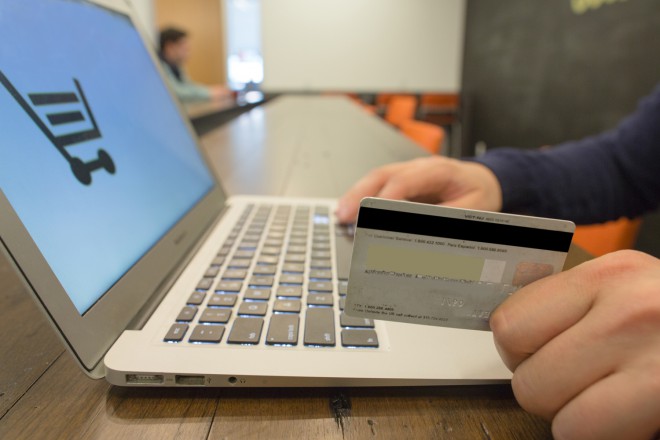As the internet continues to advance, users rely on it more for everything from social interactions to gathering information and shopping, to name a few. Many people have adopted the internet as a necessary part of their lives without giving much thought to the risks of doing so. But with identity theft, home invasions and credit card fraud becoming easier with information made available online, you should be conscious of what cyber security is and what you can do to protect yourself.
WHAT IS CYBER SECURITY?
Cyber Security describes the processes and technologies that are put in place to protect information stored on networks and computers, or shared over the internet, from being accessed by unintended parties.
HOW CAN YOU PROTECT YOURSELF?
Here are a few ways you can protect yourself from falling victim to a cyber attack on your personal information:
Update Software
Install the latest anti-virus software and the most current program updates to make sure you have the latest and greatest security updates. Enable “auto-update” wherever possible.
Wireless Password
Protect your wireless network by enabling a password on it. Not just any password, one that is difficult to guess.
Back-Up Files
Back up your files to an external or secure cloud storage on a regular basis.
Secure Connections
If you are logging in somewhere, make sure you’re using a secure connection (in the address bar at the top, the URL will begin with https:// rather than the normal http://. The “s” stands for secure.)
Post with Caution
Post with caution on social media sites. Understand that the information you put on the internet can be fun to share with your friends, but it can also be used against you if put into the wrong hands. Before you post, think about whether or not someone could use the information for your harm.
Privacy Settings
Adjust your settings on social media sites to ensure only the people you intend to see your posts, do. These sites update their privacy policies often, which might impact your settings. Continue to monitor your privacy settings on a regular basis to stay secure.
Secure Passwords
Make your passwords unique and secure. Use a combination of numbers, uppercase and lowercase letters, and characters to make your passwords. Using different passwords for each online account is the most secure practice.
Throw it Out
If you’re unsure whether or not something is legitimate, throw it out. If it is important, there are likely other channels such as phone or mail that institutions can use to relay important messages to you.
Personal Info
Do not share personal information to strangers online, including address, age, phone number, birthday, email address, social insurance number … not even your doctor’s name.
Contests and Clubs
Do not enter contests or join clubs online unless you are certain that they are secure and reputable establishments.
Ultimatums
Do not respond to ultimatums claiming “your account will be closed if you don’t act now” or any other messages that force you to give personal information in an urgent matter.
Stranger Danger
Do not communicate with people you don’t actually know. This means not accepting friend requests on Facebook and not answering e-mails from strangers. The more you communicate with someone, the more you reveal about yourself unintentionally.
Repeat Passwords
Do not repeat the same password across multiple online accounts.
Pharmaceuticals
Do not open any e-mails relating to pharmaceuticals.
Attachments/Links
Do not open e-mail attachments or click on links from unknown senders. Also, do not reply to these e-mails. There are many bank scams out there asking you to verify your personal information. Your bank, insurance company, official government agency or anyone else who matters would never ask you to send personal information by e-mail, or wouldn’t send you an e-mail asking you to update your personal information at random.
Nothing is Free
Anything free is too good to be true. Do not even open or entertain anything including an offer for something free, this is definitely a scam. Examples include gifts, prizes, vacations or anything that boasts “You’re a Winner!” Many of these phishing scams even ask you to give your credit card information to redeem your free prize. Do not give out your credit card information to anyone who asks.
Friends in Trouble
Do not respond to e-mails that are from friends or family members that are riddled with spelling errors, claiming that they are in trouble or asking for money. This likely has been hacked and is being used for online scams.
Most importantly, share this information with the people you care about most to make sure your loved ones stay as secure as possible. For more information on how to protect yourself, visit the government of Canada’s website at http://www.getcybersafe.gc.ca/cnt/prtct-yrslf/index-en.aspx.
Distinctive Advisors is committed to excellence in client service and we are here to help with anything for your home and your life. For more information about how we can help you, call us to find out about our Lifestyle Concierge service today.

Comments